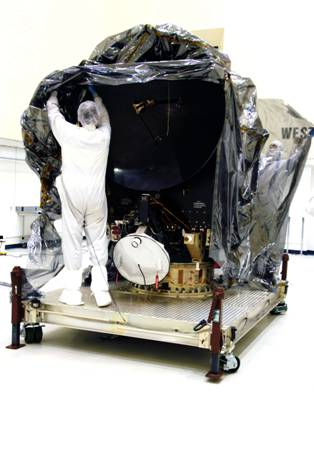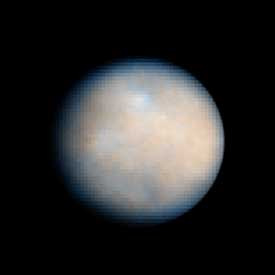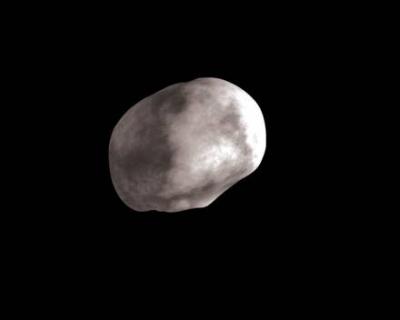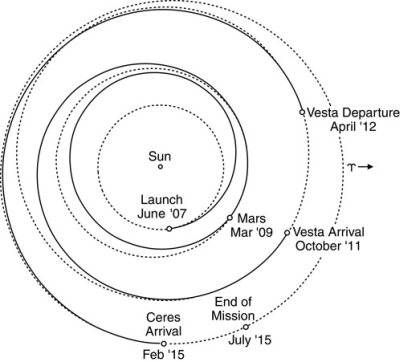03 April 2007

Credit: NASA-KSC
On 10 April 2007, the Dawn spacecraft arrived at Astrotech Space Operations in Titusville, Florida. Dawn, NASA’s mission into the main asteroid belt, is at the facility for final processing and launch operations. Dawn’s launch window opens on 30 June 2007.
The Dawn spacecraft will apply ion propulsion to explore two intriguing objects of the asteroid belt, asteroid Vesta and dwarf planet Ceres, regarded as primordial material, left over form the formation of the Solar System. Scientists hope that Dawn's data will yield new insights into the dawn of the Solar System.
"Dawn only has two more trips to make," said Dawn Project Manager Keyur Patel of NASA’s Jet Propulsion Laboratory (JPL) in Pasadena, California. "One will be in mid-June when it makes the 15-mile journey from the processing facility to the launch pad. The second will be when Dawn rises to begin its eight-year, 3.2-billion-mile odyssey into the heart of the asteroid belt."

A Hubble Space Telescope Image of Ceres
Credit: NASA-ESA

Vesta
Credit: Ben Zellner (Georgia Southern University), Peter Thomas (Cornell University and NASA)
Ceres (975 km across) orbits the Sun between Jupiter and Mars at an average distance of approximately 415 million km. Its orbital period is nearly 4.6 years.
Vesta (about 530 km across), orbits the Sun at an average distance of approximately 353 million km, every 3.63 years.
Dawn will be launched aboard the Delta II 9725-H rocket from Cape Canaveral, Florida.

The Interplanetary Trajectory of the Dawn Spacecraft
(Dashed lines represent the orbits of Mars, Ceres and Vesta.)
Credit: NASA-JPL
The Dawn mission is managed by JPL, a division of the California Institute of Technology (Caltech), for NASA's Science Mission Directorate in Washington, D.C. The University of California Los Angeles is responsible for overall Dawn mission science.
Further Reading
The Dawn Mission Homepage
http://dawn.jpl.nasa.gov/
Aymen Mohamed Ibrahem
Senior Astronomy Specialist